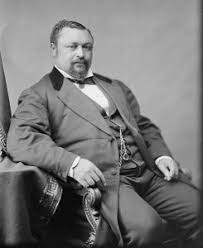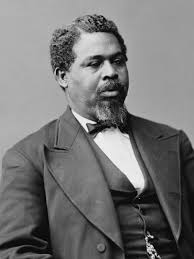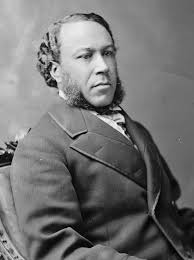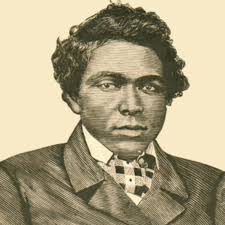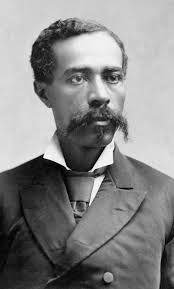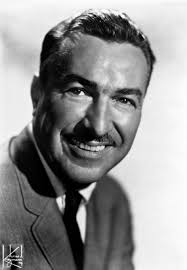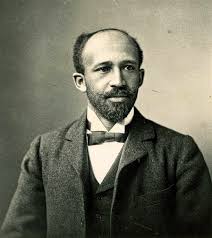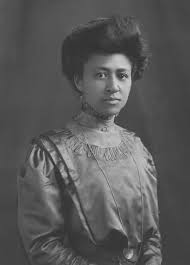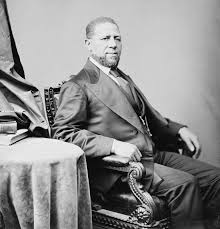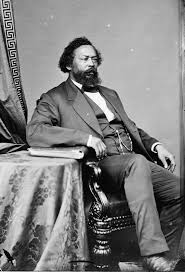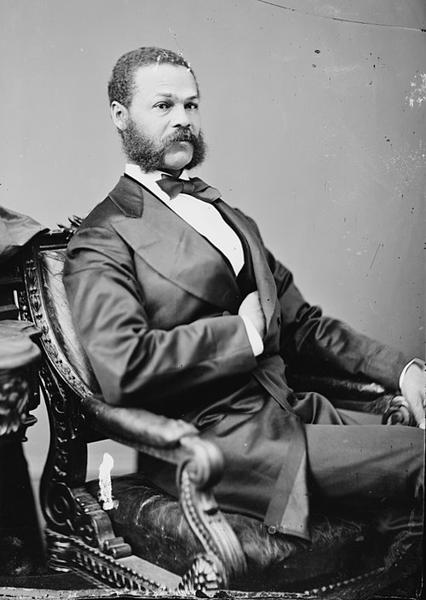FREEDMEN UNIVERSITY
Power is The Ability to Define Phenomena and Make it Act in a Desired Manner. - Huey P. Newton
W. A .W.G
Great Statesmen
Blanche Bruce
was an American politician who represented Mississippi as a Republican in the United States Senate from 1875 to 1881.
Born into slavery in Prince Edward County, Virginia, he went on to become the first elected Black American senator to serve a full term.
He was appointed as Recorder of Deeds in Washington D.C. during Benjamin Harrison's presidency.
His home, the Blanche K. Bruce House, is a National Historic Landmark.
Robert Smalls
was an Black American politician who was born into slavery in Beaufort, South Carolina.
During the American Civil War, the still enslaved Smalls commandeered a Confederate transport ship in Charleston Harbor and sailed it from the Confederate-controlled waters of the harbor to the U.S. blockade that surrounded it.
Smalls was one of the founders of the South Carolina Republican Party.
Joseph Hayne Rainey
was an American politician.
He was the first black person to serve in the United States House of Representatives and the second black person to serve in the United States Congress.
His service included time as presiding officer of the House of Representatives.
Born into a family of farmers and planters, Rainey was a member of the Republican Party.
Josiah T. Walls
was a farmer, lawyer and politician who served all or some of three terms in the United States House of Representatives between 1871 and 1876.
In 1870, Walls was nominated as the Republican candidate for Florida's sole at-large congressional seat after a contentious party convention.
He was one of the first Black Americans in the United States Congress elected during the Reconstruction Era, and the first black person to be elected to Congress from Florida.
He also served four terms in the Florida Senate.
Abraham Galloway
was an Black American Republican politician who served as a state Senator in North Carolina.
Born in Smithville (now Southport, North Carolina) in 1837.
A former slave who played an important role in supporting the Union Army's success in North Carolina, he served in the North Carolina Senate during the Reconstruction era following the Civil War.
In May 1864 Galloway was part of a delegation of five black leaders who met with Abraham Lincoln and urged him to advocate for suffrage for Black Americans.
That same year, Galloway was also one of the 144 Black leaders who attended the National Convention of Colored Citizens of the United States, which has been cited as the most important gathering of Black American leaders during the Civil War.
John Roy Lynch
was an American writer, attorney, military officer, author, and Republican politician who served as Speaker of the Mississippi House of Representatives and represented Mississippi in the United States House of Representatives.
Lynch was born into slavery in Louisiana and became free in 1863 under the Emancipation Proclamation.
During Reconstruction, Lynch became a prominent political leader in Mississippi.
In 1873, Lynch was elected as the first Black American Speaker of the Mississippi House of Representatives; he is considered the first Black man to hold this position in any state.
He was among the first generation of Black Americans from the South elected to the U.S. House of Representatives and served in the 44th, 45th, and 47th Congresses.
Adam Clayton Powell Jr
was an American Baptist pastor and politician who represented the Harlem neighborhood of New York City in the United States House of Representatives from 1945 until 1971.
He was the first Black American to be elected to Congress from New York, as well as the first from any state in the Northeast.
Re-elected for nearly three decades, Powell became a powerful national politician of the Democratic Party, and served as a national spokesman on civil rights and social issues.
W. E. B. Du Bois
was an American sociologist, socialist, historian, and Pan-Africanist civil rights activist.
Born in Great Barrington, Massachusetts, Du Bois grew up in a relatively tolerant and integrated community.
After completing graduate work at the Friedrich Wilhelm University in Berlin and Harvard University, where he was its first African American to earn a doctorate, Du Bois rose to national prominence as a leader of the Niagara Movement, a group of black civil rights activists seeking equal rights.
Nina Gomer Du Bois
was an American civil rights activist, Baháʼí Faith practitioner, and homemaker.
She served on the executive committee of the Women's International Circle of Peace and Foreign Relations in 1927, which was largely responsible for organizing the fourth Pan-African Congress in New York.
Du Bois was the first wife of civil rights activist W.E.B. Du Bois and the mother of the educator Yolande Du Bois.
Hiram R. Revels
was an American Republican politician, minister in the African Methodist Episcopal Church, and college administrator.
Born free in North Carolina, he later lived and worked in Ohio, where he voted before the Civil War.
Elected by the Mississippi legislature to the United States Senate as a Republican to represent Mississippi in 1870 and 1871 during the Reconstruction era, he was the first Black American to serve in either house of the U.S. Congress.
During the American Civil War, Revels had helped organize two regiments of the United States Colored Troops and served as a chaplain.
Benjamin Sterling Turner
was an American businessman and politician who served in the United States House of Representatives representing Alabama's 1st congressional district in the 42nd United States Congress.
He joined the Republican Party after the Civil War.
In 1867, he attended the Republican state convention and attracted the attention of local GOP officials. That same year he was appointed Dallas County's tax collector.
In 1869, Turner was elected a Selma councilman, but he resigned in protest after being offered compensation because he believed public officials should not be paid when economic conditions were poor.
Jefferson Franklin Long
was a U.S. congressman from Georgia.
Long had established himself as a prominent member of the Republican Party in 1867
He was the second Black American sworn into the U.S. House of Representatives and the first Black American congressman from Georgia.
Long was the first Black American Representative to speak on the floor of the U.S. House, opposing the Amnesty Bill that exempted former Confederates serving in the House from swearing allegiance to the Constitution.
He remained the only Black American to represent Georgia until Andrew Young was elected in 1972.
